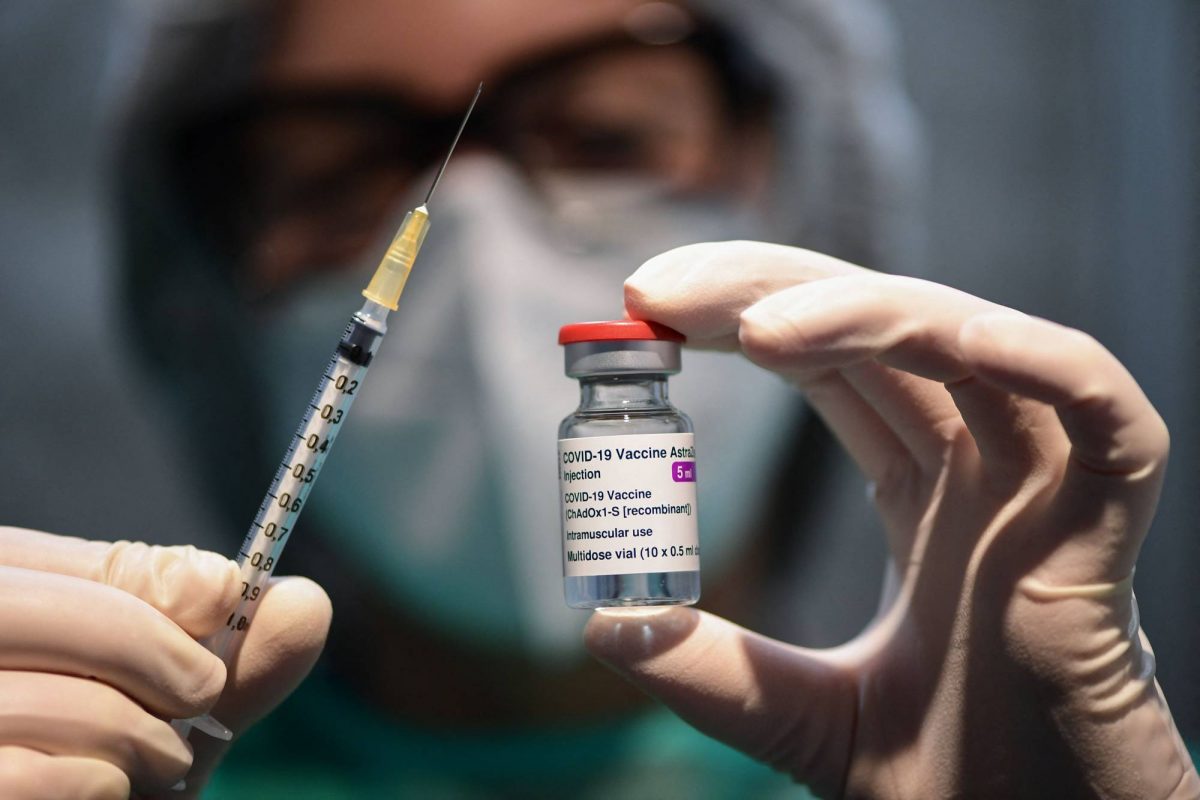COPENHAGEN, (Reuters) – Denmark is suspending for two weeks the use of AstraZeneca’s COVID-19 vaccine shots after reports of the formation of blood clots in some who have been vaccinated, including one death in Denmark, Danish authorities said on Thursday.
The move comes after one person in Denmark who was given the AstraZeneca shot formed a blood clot and died, the Danish Health Authority said.
Austria has stopped using a batch of AstraZeneca shots while investigating a death from coagulation disorders and an illness from a pulmonary embolism.
“Both we and the Danish Medicines Agency have to respond to reports of possible serious side effects, both from Denmark and other European countries,” the director of the Danish Health Authority, Soren Brostrom, said in a statement.
“It is currently not possible to conclude whether there is a link. We are acting early, it needs to be thoroughly investigated,” Health Minister Magnus Heunicke said on Twitter.
The vaccine would be suspended for 14 days. The health agency did not give details of the Danish blood clot victim.
Some health experts said there was little evidence to suggest the vaccine should not be administered and that the cases of blood clots corresponded with the rate of such cases in the general population.
“This is a super-cautious approach based on some isolated reports in Europe,” Stephen Evans, professor of pharmacoepidemiology at the London School of Hygiene & Tropical Medicine, told Reuters.
“The problem with spontaneous reports of suspected adverse reactions to a vaccine are the enormous difficulty of distinguishing a causal effect from a coincidence,” he said.
AstraZeneca on Thursday told Reuters in a written statement the safety of its vaccine had been extensively studied in human trials and peer-reviewed data had confirmed the vaccine was generally well tolerated.
The drugmaker said earlier this week its shots were subject to strict and rigorous quality controls and that there had been “no confirmed serious adverse events associated with the vaccine”. It said it was in contact with Austrian authorities and would fully support their investigation.
The European Union’s drug regulator, the European Medicines Agency (EMA), said on Wednesday there was no evidence so far linking AstraZeneca to the two cases in Austria.
It said the number of thromboembolic events – marked by the formation of blood clots – in people who have received the AstraZeneca vaccine is no higher than that seen in the general population, with 22 cases of such events being reported among the 3 million people who have received it as of March 9.
EMA was not immediately available for comment on Thursday.
Four other countries – Estonia, Lithuania, Luxembourg and Latvia – have stopped inoculations from the batch while investigations continue, the EMA said.
The batch of 1 million doses went to 17 EU countries.
“We do not think that there is sufficient evidence to stop vaccination with AstraZeneca’s vaccine,” Veronica Arthurson, head of drug safety at the Swedish Medical Products Agency, told Newsagency TT.
The Danish Medicines Agency said it had launched an investigation into the vaccine together with corresponding agencies in other EU countries as well as the EMA.
“It is important to emphasise that we have not opted out of using the AstraZeneca vaccine, but that we are putting it on hold,” Brostrom said.
So far, 136,090 Danes have received a shot with AstraZeneca’s vaccine in a country of 5.8 million. The Nordic country, which also uses vaccines from Pfizer-BioNTech and Moderna, is set to receive 2.6 million doses from AstraZeneca over the coming months.
Denmark’s Health Authority said it had pushed back the final date for when it expects all Danes to have been fully vaccinated by four weeks to Aug. 15 as a result of the vaccine suspension.
Spain On Thursday said it had not registered any cases of blood clots related to AstraZeneca’s vaccine so far and would continue administering the shots.

